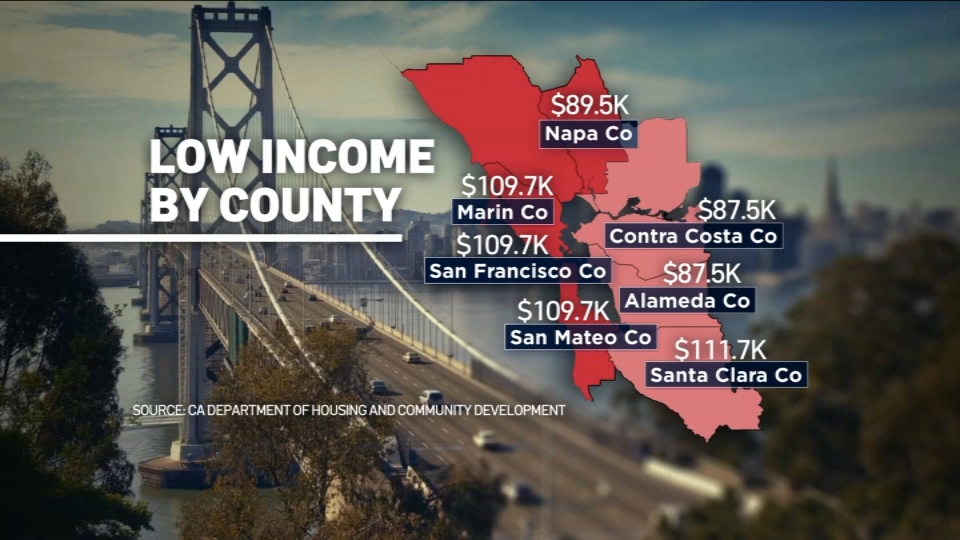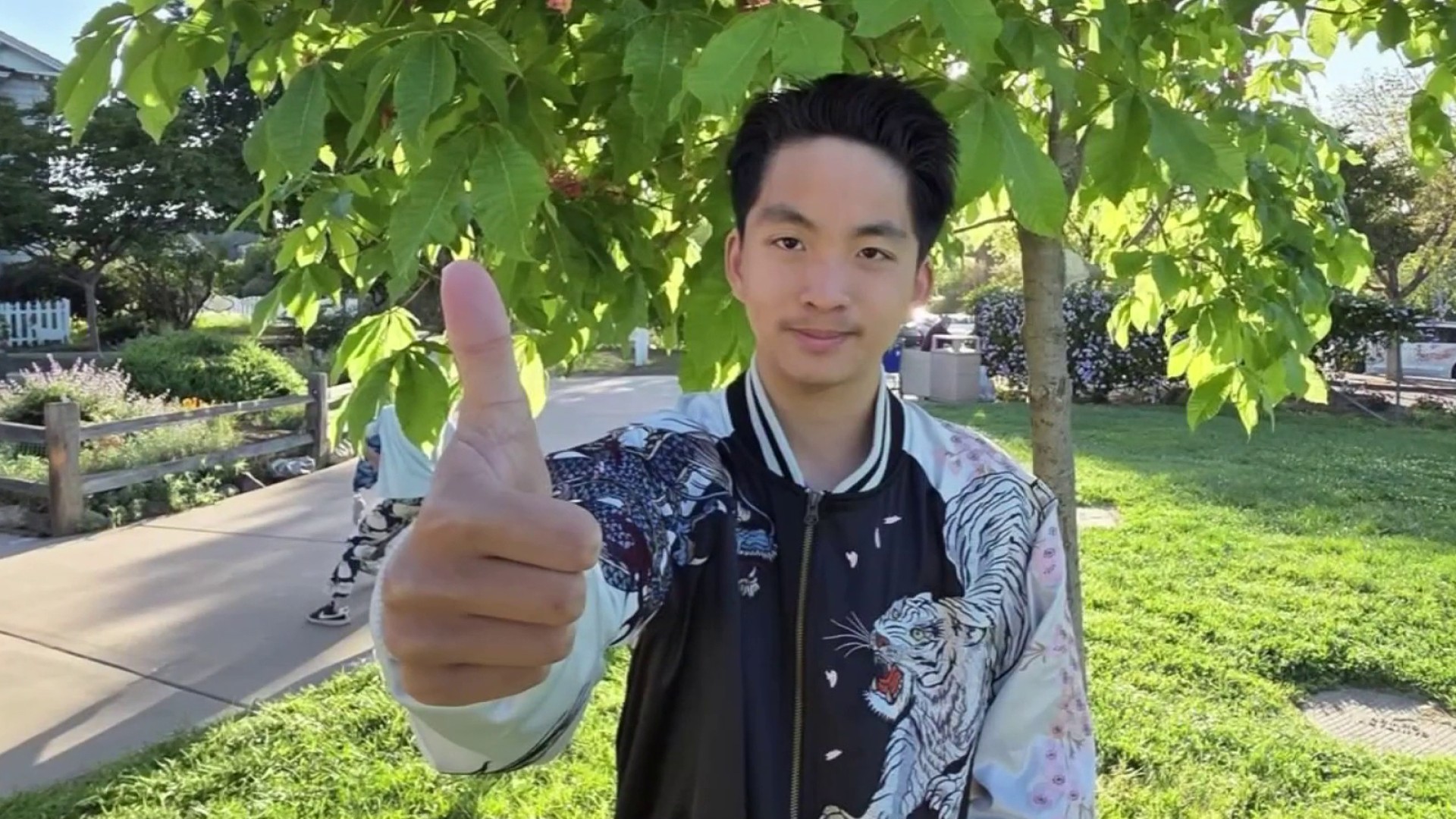$100K Salary? "Low Income" Now in 4 Bay Area Counties!
$100K No Longer a Fortune? "Low Income" Threshold Reaches Shocking Levels in Bay Area
Introduction: The Shrinking Dollar in the Golden State
Ever dreamed of making six figures? It sounds like the ultimate financial goal, right? But what if that dream salary barely gets you by? That's becoming a harsh reality for many in the San Francisco Bay Area. New data reveals a shocking trend: earning $100,000 a year is now considered "low income" in several Bay Area counties. How is this even possible? Let's dive into the eye-opening details of this report and explore the factors driving this unsettling economic landscape.
The Numbers Don't Lie: A $100K Salary Struggles to Keep Up
A recent report from the California Department of Housing and Community Development paints a stark picture of the Bay Area's affordability crisis. In Marin, San Mateo, San Francisco, and Santa Clara counties, a single person earning over $100,000 annually can still be classified as low income. This isn't some theoretical scenario; it's the lived reality for countless residents struggling to make ends meet.
Santa Clara County: The Epicenter of the Affordability Crisis
Nowhere is this issue more pronounced than in Santa Clara County, the heart of Silicon Valley. Here, an individual earning under $111,700 per year is now officially considered "low income." Let that sink in for a moment. You could be pulling in a six-figure salary and still be struggling to afford basic necessities like housing, food, and transportation.
The Reality on the Ground: San Jose Residents Speak Out
"If you make $111,000 a year, you’ll still have a hard time getting a spot here," said San Jose resident Samuel Carbajal. His words echo the sentiments of many others who feel trapped in a cycle of financial insecurity despite earning what would be considered a substantial income in most other parts of the country.
San Jose residents who spoke to NBC Bay Area on Wednesday expressed that while the number might seem shocking to outsiders, it aligns with their daily struggles. "It’s not a livable situation,” said San Jose resident Kingsley Egbujor. People are having to stretch their budgets to the limit, making difficult choices between essential expenses.
The Culprit: Sky-High Housing Costs
So, what's driving this bizarre situation? The answer, in a word: housing. The Bay Area's real estate market is notoriously expensive, with median home prices reaching astronomical levels. A small condo can easily cost over $1 million, putting homeownership out of reach for many, even those with high salaries.
The Rental Market: A Battle for Survival
The rental market isn't any better. Competition for apartments is fierce, and rents are among the highest in the nation. Even with a $100,000+ salary, finding a decent place to live can feel like a constant battle for survival. It's a situation that forces many to live with roommates well into their adult years or endure long commutes from more affordable areas.
The Tech Boom's Impact: A Double-Edged Sword
The Bay Area's booming tech industry has undoubtedly created immense wealth and opportunity. However, it has also exacerbated the affordability crisis. The influx of high-paying tech jobs has driven up demand for housing, pushing prices to unsustainable levels. It's a classic case of supply and demand, with demand far outstripping the available housing supply.
The Inequality Gap: Widening at an Alarming Rate
The tech boom has also contributed to a growing inequality gap in the Bay Area. While some individuals have become incredibly wealthy, many others are struggling to keep up with the rising cost of living. This disparity creates a sense of social and economic division, making it difficult for communities to thrive.
Beyond Housing: Other Factors Contributing to the High Cost of Living
While housing is the primary driver of the affordability crisis, other factors also play a significant role. The cost of food, transportation, childcare, and healthcare are all significantly higher in the Bay Area compared to other parts of the country. These expenses add up quickly, making it challenging to maintain a comfortable standard of living, even with a six-figure income.
Transportation Costs: A Major Burden
Commuting in the Bay Area can be a significant expense, whether you're driving or relying on public transportation. Gas prices are consistently higher than the national average, and public transit fares can be costly. The time spent commuting also adds to the burden, taking away valuable hours that could be spent working or with family.
The Impact on Families: A Difficult Balancing Act
The high cost of living has a particularly profound impact on families. Raising children in the Bay Area is incredibly expensive, with childcare costs often rivaling college tuition. Many families find themselves struggling to balance their careers with the demands of raising a family, often sacrificing personal time and financial security.
The Squeeze on the Middle Class: A Generational Struggle
The affordability crisis is squeezing the middle class in the Bay Area, making it difficult for younger generations to achieve the same level of economic security as their parents. Many young professionals are delaying marriage and starting families due to financial constraints. It's a trend that could have long-term consequences for the region's economy and social fabric.
Possible Solutions: Addressing the Affordability Crisis Head-On
Addressing the Bay Area's affordability crisis will require a multi-faceted approach. Increasing the housing supply is crucial, but it's not the only solution. Policymakers also need to consider policies that address income inequality, improve public transportation, and provide support for families.
Building More Affordable Housing: A Long-Term Investment
One of the most effective ways to address the housing shortage is to build more affordable housing units. This can be achieved through a combination of government subsidies, incentives for developers, and zoning reforms that allow for denser development. However, building affordable housing takes time, and the demand is urgent.
The Future of the Bay Area: Will It Remain Accessible to All?
The future of the Bay Area hinges on its ability to address the affordability crisis. If the region fails to create a more equitable and accessible economic environment, it risks losing its vibrancy and diversity. The question is, will policymakers and community leaders be able to find solutions that ensure the Bay Area remains a place where everyone can thrive, regardless of their income level?
Conclusion: A Wake-Up Call for the Bay Area
The fact that a $100,000 salary is now considered "low income" in parts of the Bay Area is a stark reminder of the region's affordability crisis. Sky-high housing costs, driven by the tech boom and a lack of adequate housing supply, are pushing many residents to the brink. Addressing this challenge will require a comprehensive approach that includes building more affordable housing, addressing income inequality, and providing support for families. The future of the Bay Area depends on it.
Frequently Asked Questions
Q1: How is "low income" defined in the Bay Area?
The definition of "low income" varies by county and is based on a percentage of the area median income (AMI). The California Department of Housing and Community Development sets these income limits annually.
Q2: Why is housing so expensive in the Bay Area?
Several factors contribute to the high cost of housing, including high demand due to the tech boom, limited housing supply due to strict zoning regulations and slow permitting processes, and the desirable location and climate.
Q3: What can I do if I'm struggling to afford to live in the Bay Area?
Consider exploring housing assistance programs, such as Section 8 or other subsidized housing options. Look into living with roommates to share expenses. Also, research areas outside of the immediate Bay Area core that may offer more affordable housing options, even if it means a longer commute.
Q4: Are there any efforts being made to address the affordability crisis?
Yes, various initiatives are underway, including efforts to build more affordable housing, reform zoning regulations, and increase funding for housing assistance programs. However, these efforts are often met with challenges and progress can be slow.
Q5: Will the cost of living in the Bay Area ever decrease?
Predicting the future is difficult, but significant decreases in the cost of living are unlikely in the short term. While housing prices may fluctuate, the underlying factors driving the high cost of living, such as limited housing supply and strong demand, are likely to persist. A major economic downturn or significant policy changes could potentially impact the cost of living, but it's difficult to say for sure.

